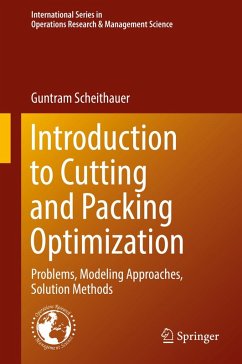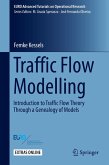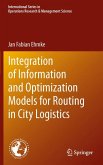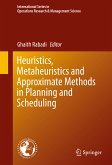Dieser Download kann aus rechtlichen Gründen nur mit Rechnungsadresse in A, B, BG, CY, CZ, D, DK, EW, E, FIN, F, GR, HR, H, IRL, I, LT, L, LR, M, NL, PL, P, R, S, SLO, SK ausgeliefert werden.
"The book delves into details and it provides a comprehensive treatment of appropriate modelling approaches and solution methods of the problem types presented. The strategy of first addressing simple problems and then building up to the more complex ones is an effective teaching and learning strategy. This makes the book a valuable source of fundamental knowledge and latest research results for students, practitioners, and researchers who find themselves facing cutting and packing challenges." (Hans W. Ittmann, IFORS News, Vol. 11 (4), December, 2017)









